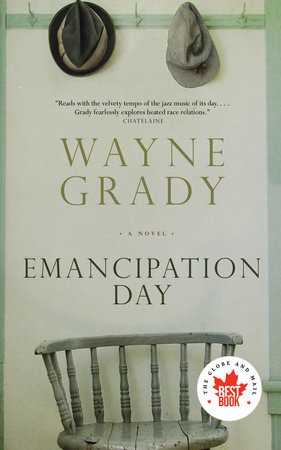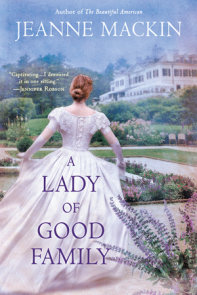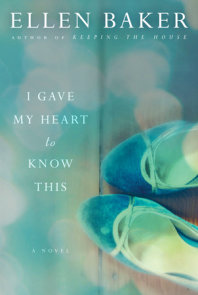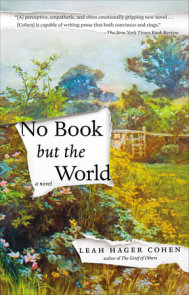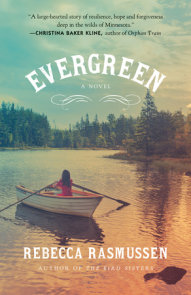READERS GUIDE
Introduction
How far would a son go to belong? And how far would a father go to protect him?With his curly black hair and his wicked grin, everyone swoons and thinks of Frank Sinatra when Navy musician Jackson Lewis takes the stage. It’s World War II, and while stationed in St. John’s, Newfoundland, Jack meets the well-heeled, romantic Vivian Clift, a local girl who has never stepped off the Rock and is desperate to see the world. They marry against Vivian’s family’s wishes–hard to say what it is, but there’s something about Jack that they just don’t like–and as the war draws to a close, the new couple travels to Windsor to meet Jack’s family.
But when Vivian meets Jack’s mother and brother, everything she thought she knew about her new husband gets called into question. They don’t live in the dream home that Jack depicted, they all look different from one another–and different from anyone Vivian has ever seen–and after weeks of waiting to meet Jack’s father, William Henry, he never materializes.
Steeped in jazz and big-band music, spanning pre- and post-war Windsor-Detroit, St. John’s, Newfoundland, and 1950s Toronto, this is an arresting, heartwrenching novel about fathers and sons, love and sacrifice, race relations and a time in our history when the world was on the cusp of momentous change.
Emancipation Day won the Amazon.ca First Novel Award, was a finalist for the CBA Libris Award, was longlisted for the Scotiabank Giller Prize and was named a Best Book of the Year by The Globe and Mail, the National Post, and the CBC.
Questions and Topics for Discussion
1. Why do you think Wayne Grady chose William Henry, Jack and Vivian as the narrators? Would you have chosen someone else?
2. What are your thoughts on Jack’s character? Did you sympathize with his plight, with his cool nature, or were you repelled by it?
3. Throughout their courtship and marriage in St. John’s, Jack never reveals to Vivian his African-American heritage. Why do you think this is? Does Jack consider himself to be “passing” as a white person, or does he honestly believe he is white?
4. The novel is predicated on racism, denial, and willful misunderstandings. Jack never admits to being black. Not even to himself. William Henry is as ashamed of his fair-skinned son as Jack is of his true racial background. The exploration of what race is and the influence of family is thought provoking. Discuss.
5. Have you ever denied or lied about anything to do with your heritage to get ahead? Have you ever reinvented yourself?
6. What were the advantages that came to Jack as a result of taking on a white identity?
7. Why do you suppose Vivian doesn’t pointedly question the increasingly elaborate excuses Jack offers for why she still hasn’t met William Henry? Why does she want to love a man who she suspects is a liar?
8. Do you find it believable that Vivian would fall in love with Jack? And that she would stay with him when she begins to suspect his treachery?
9. How much did you know about the history of World War II in Canada and the Battle of the Atlantic before you read this book? Are you compelled to read more about the era?
10. The tone, the timbre and the pacing of the novel are steeped in music. What kind of a role did jazz and big band play in the lives of the characters and their identities (Jack and Peter, in particular)?
11. Vivian and Della are strikingly different women but are both archetypes of their era. On page 54 Vivian says that, “You can’t belong to a thing you belong to a place.” How do you think the places they “belong” to shaped them as individuals?
12. Two events precipitate Jack’s joining the Navy. The Detroit Riot and his brief affair and subsequent rejection by Della Barnes. Which of the two events was the more significant, from Jack’s point of view? And how are they related?
13. How did the issue of race play out differently in Windsor during this era that it may have in other parts of Canada?
14. Discuss the gravity of the first sentence, the importance of name, and the implications of the last sentence.
15. The novel takes place more than a century after the Slavery Abolition Act 1833 ended slavery in the British Empire. Discuss the blatant and subtle ways Grady shows that racism and racial tensions still existed in Canada.
16. Have you read any of Wayne Grady’s non-fiction works? Can you see a similarity in writing styles, especially considering this novel is loosely based on his family history?
17. What is the significance of the title, Emancipation Day? Who, by the end the novel, is emancipated?
18. What did you take away from this novel?









